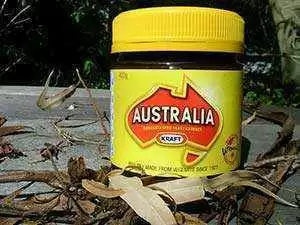.webp.766ee13fbe7f620955526d7f62bc7163.webp)
Celiac.com 07/09/2013 - In Australia, and New Zealand, people with celiac disease currently benefit from regulations that require food sold as "gluten-free" to contain no detectable levels of gluten.
 However, that may be set to change, as Australian food manufacturers and retailers push the government agency that regulates gluten-free food to allow gluten to be included in foods labeled ''gluten-free.''
However, that may be set to change, as Australian food manufacturers and retailers push the government agency that regulates gluten-free food to allow gluten to be included in foods labeled ''gluten-free.''
Celiac.com Sponsor (A12):
That agency, called Food Standards Australia New Zealand, is facing pressure by the Australian Food and Grocery Council (AFGC), which wants foods sold as "gluten-free" to be able to contain up to 20 milligrams of gluten per kilogram, thus bringing Australia in line with British and European standards.
The push by AFGC for a new gluten limit has drawn little praise from dietitians, who say Australians with celiac disease and an associated condition, dermatitis herpetiformis, rely on gluten-free foods.
Now, while the Australian standard of "no detectable gluten" in foods sold as "gluten-free" may sound great in theory, it is not without problems.
The standard of "no detectable gluten" means that acceptable gluten-levels will be pushed ever lower as newer, more sensitive tests become available. And such tests are now becoming more sensitive all the time.
Dr Sue Shepherd, a dietitian specializing in food intolerance and gastrointestinal nutrition, says that Australia must rethink its current rule precisely because tests are growing so sensitive that foods currently meeting the ''undetectable gluten'' standard might soon fail to meet standards.
Under the Australian/New Zealand standard, many foods from EU and the United States are currently not permitted, and any that might meet current standards face the same problem: future standards may disqualify currently acceptable products.
Also, having changing standards and changing products that meet that standard is confusing for shoppers and grocery retailers.
Others worry that changing the current rule will allow unfair competition from imported products. Many of those imported "gluten-free" products are cheaper, in part because lower standards mean higher acceptable gluten levels and lower cost.
Michael Bracka, chief executive of Freedom Foods and former boss of Kellogg Australia, opposes weakening gluten content standards for gluten-free foods.
Bracka fears that weakening standards could result in cheap imports flood Australian shelves and damaging what is currently a very successful local industry. Moreover, he adds, the changes proposed by AFGC are "misleading to consumers."
A spokeswoman for Food Standards said that the agency is working with AFGC on its application and that it intends to consult all stakeholders.
What do you think? Should the standard for gluten-free foods be "no detectable gluten?" What does that mean for food producers? For consumers? For prices? Share your comments below.
Source:
- Open Original Shared Link






Recommended Comments